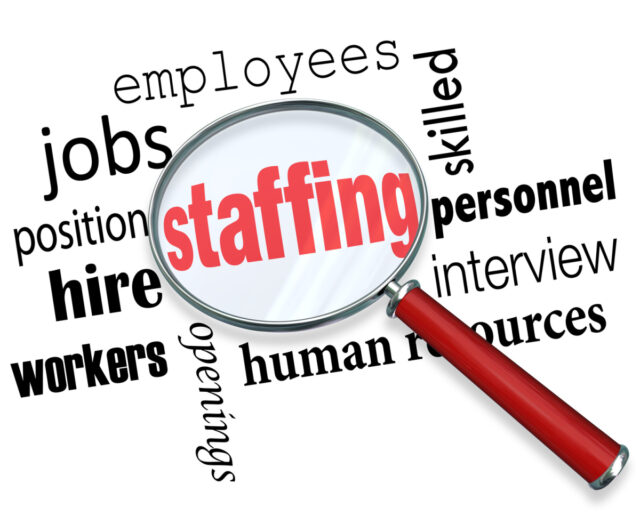
Most of the job searchers try to approach the staffing agencies without understanding how it operates. Many people are still puzzled by their working behavior in the market. These days, the trend of utilizing the help and support of these professionals has become common around the world. No doubt, these agencies are much experienced in staffing the professionals to provide a positive boost to their careers. So, let’s attempt to define what it is and how it operates.
What is a staffing agency?

They have effectively taken over the old trend of hiring staff for the job. Staffing competent people for the respective jobs, these solution providers have introduced the refresh method of staffing which is quite effective and useful.
Today, it is an organization that has been granted permission by the National Agency for Active Labor Policies to provide services related to employment supply and demand. The agency, in particular, strives to organize meetings between the two sides, with the dual goal of providing employers with selection tools and services and applicants with help for training and finding a position that matches their talents and goals.
Different Types of Staffing Agencies

The legislative order n.276 of September 10, 2003, determines the legislation that governs the services provided by staffing agencies. The agencies must be properly registered in the IT register to function, according to these laws. Because there are five different types of recognized temp agencies. Visit this website, to know how they have split into five sections.
- Agencies that provide labor administration, intermediation, personnel research and selection, and support operations for professional outplacement are known as “generalist” administration agencies. They can recruit workers (i.e., send them to firms as employees) for a set length of time or indefinitely. They are included in the third, fourth, and fifth sections, even though the first is the one dedicated solely to them, due to their generalist nature.
- Specialist-type administrative agencies: they are classified in the second part of the Register and are differentiated by the fact that they can only offer personnel temporarily.
- Brokerage firms: those tasked with bridging the gap between supply and demand. They can do this by posting job advertisements, collecting applications, conducting pre-selection interviews, and then, at the client’s request, conducting training activities aimed at the professional integration of applicants. Finally, they can recruit by handling the necessary documents and correspondence for the case. Brokerage agencies are listed in the fourth and fifth sections of the Register because they perform all of these functions.
- Personnel search and selection agencies: they act as consultants for their clients, attempting to discover the best-qualified candidates for open jobs.
- Professional relocation assistance agencies: they specialize in activities targeted at assisting clients in relocating personnel to the labor market.
Randstad is a part of the first group of an employment agency, and it offers all of the other types’ services.
The Intelligent factors of Staffing Agencies

Let’s attempt to properly describe the various sorts of staffing agencies now that we’ve identified them. Their job is divided into two categories: that of businesses and that of workers. In the first case, clients turn to a staffing agency when they need staff and can thus seek advice or assistance with the preference; if these companies are unable to hire the candidates directly, we proceed with administration, in which the workers are hired by them on a temporary or permanent basis and then administered to the client companies.
Applicants can contact the staffing agency for free on the second front: all services directed to them are in reality free because they are paid for by the client firms. Candidates might receive training and orientation from the job agency, as well as assistance with shifting and employment services.
Other Effective Benefits of Using a Staffing Agency Support

Anyone who plans to employ the services provided by a staffing agency would benefit much by doing so. The following are the customer companies in detail:
- They receive assistance in people selection from a strategic partner that is well-versed in the employment market and knows how to respond quickly to their requirements;
- They no longer have to be concerned not just with people searches, but also with all of the administrative procedures associated with the activation of employment contracts.
Candidates Will Get the Following Benefits

- take advantage of free orientation and professional training services given by individuals who are well-versed in current labor market trends and can therefore guide them in the best possible direction toward the fastest-growing industries and most sought-after professional figures;
- They obtain employment offers that are as relevant to their professional profile as feasible, and therefore based on merit criteria;
- they receive support and help throughout both the selection and recruitment phases;
- In addition to having the same rights, protections, and compensation as the company’s direct workers, the administration can make use of extra advantages such as reimbursements and indemnities provided in separate funds designated to them.
To summarize, staffing agency activity has several benefits for the labor market in general, as it promotes the connection between supply and demand and, via administration, helps to minimize the use of undeclared employment and other types of work that do not provide staff members with protection.
Recruiting agency VS staffing agency

Those who are unfamiliar with the ideas of recruitment and headhunting may confuse the recruiting agency with the staffing agency, which works as a middleman in the search for staff. These are, however, vastly different realities that serve different purposes and rely on entirely different levels of expertise. In truth, staffing agencies recruit employees and then refer individuals who are “their” employees to firms in need of human resources. Recruitment agencies, on the other hand, concentrate only on the selection, investigation, and identification of the finest prospects for their clients.
It should also be noted that pure headhunting recruiting companies do not work only on the initiative of a client organization. A headhunter firm specializing in the finance sector, for example, does not wait for a client company’s specific request to search for qualified candidates but instead builds and develops a vast database of contacts in the financial world over time to be able to propose a shortlist of potential candidates when needed.












